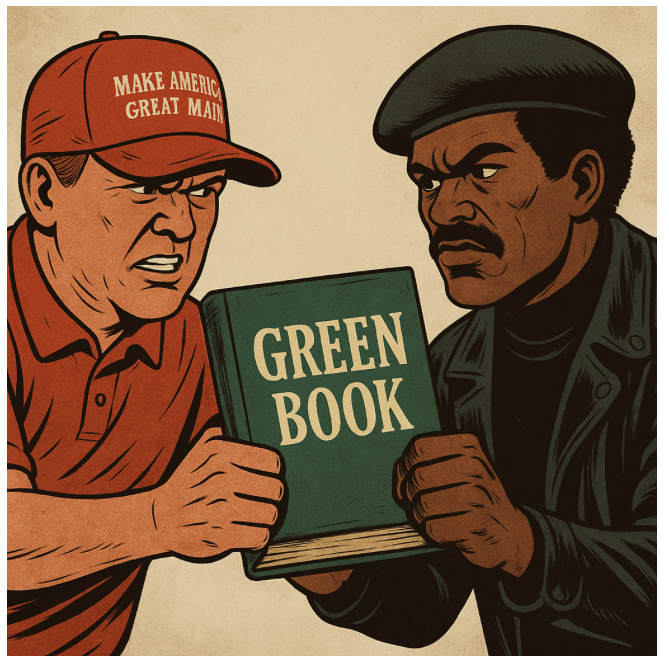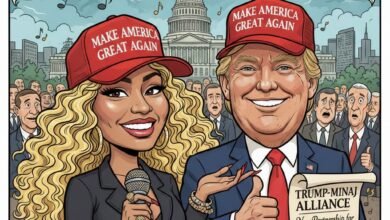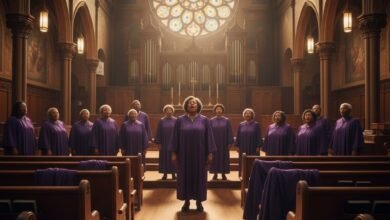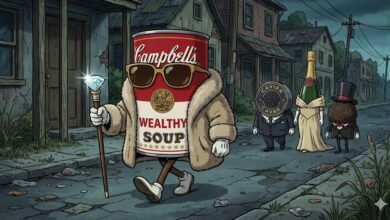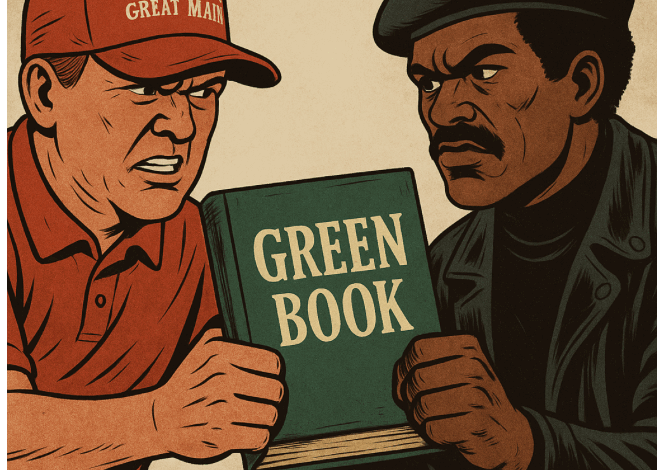
The Truth About the Green Book: Honoring Our History Amidst Modern Misuse
In recent years, far-right groups aligned with the “Make America Great Again” (MAGA) movement have promoted unofficial versions of a so-called “MAGA Green Book.” These lists aim to highlight businesses seen as supportive of conservative, pro-Trump, or “anti-woke” values. Their appropriation of the term “Green Book” has sparked outrage and reignited important conversations about historical memory, survival, and the power of storytelling.
To understand why this modern usage is so controversial, we must first revisit the true legacy of The Negro Motorist Green Book — a document born out of necessity, resilience, and love.
The Original Green Book: A Survival Guide in Jim Crow America
First published in 1936 by Harlem-based postal worker Victor Hugo Green, the Green Book was a lifeline for Black travelers during the height of racial segregation. In an era when a wrong turn could result in harassment, violence, or worse, the Green Book listed safe hotels, restaurants, gas stations, and shops across America where Black customers could expect dignity and service.
Victor Green wrote, “There will be a day sometime in the near future when this guide will not have to be published. That is when we as a race will have equal opportunities and privileges in the United States.” Sadly, during the Green Book’s active years, those equal opportunities were far from realized.
The Green Book was not just about convenience. It was about survival. It connected Black families, entrepreneurs, and travelers, creating an underground network of resilience amidst a system designed to endanger and exclude them.
Published annually from 1936 to 1966, its pages told the story of Black America’s ingenuity — highlighting thousands of Black-owned businesses long before terms like “Buy Black” became modern rallying cries.
A Deep Misappropriation: MAGA’s “Green Book”
The modern “MAGA Green Book” lists businesses considered friendly to conservative, nationalist values. Brands like Goya Foods, Chick-fil-A, Hobby Lobby, and MyPillow have been cited by supporters as examples.
Supporters argue that they have a right to organize around shared beliefs and support businesses that align with their values. Some claim that boycotts against “woke” corporations warrant an equivalent “patronage guide” for conservatives.
But critics — historians, civil rights leaders, Black communities, and cultural commentators — fiercely disagree.
Dr. Henry Louis Gates Jr., Harvard scholar and historian, noted: “The Green Book was a survival tool in an era where a wrong stop could cost you your life, not just inconvenience your politics. Equating that with consumer boycotts is a gross distortion of history.”
NAACP President Derrick Johnson called the MAGA effort “an insult to the Black American experience,” emphasizing that “the Green Book was forged in blood, not grievance.”
Meanwhile, Black media outlet Blavity editorialized that “this act of cultural theft attempts to reframe narratives of oppression into narratives of political preference.”
Cultural Climate: Why the Green Book Was Needed
The Green Book was born during the Jim Crow era — a time of legally enforced racial segregation, sundown towns, lynchings, and systemic exclusion from public accommodations.
Black Americans faced:
- Racial terror: Violent mobs, police brutality, and extra-legal murders.
- Housing discrimination: Redlining and restrictive covenants.
- Limited mobility: Gas stations refusing service, hotels denying rooms, restaurants barring entry.
Travel was dangerous. A family road trip could turn fatal based solely on skin color. The Green Book countered this danger with empowerment, mapping a path to safety and dignity across hostile terrain.
It is within this context that the profound need — and power — of the Green Book becomes undeniable. It was not a “preference list.” It was a lifeline.
Why This Matters Now
Attempts to reframe or co-opt the legacy of the Green Book for modern political purposes not only distort history, but they diminish the sacrifices, struggles, and ingenuity of those who lived through Jim Crow America.
At Here for You Central (HfYC), we are committed to honoring the truth of our history while building new narratives rooted in community, resilience, and cultural pride.
Our storytelling efforts aren’t about partisanship; they’re about truth-telling and legacy-building.
Final Word: Protecting Our Stories
As Victor Hugo Green dreamed of a future without the need for his guide, so too must we dream — but without forgetting why the guide existed in the first place.
When you hear “Green Book,” remember:
- It was about survival.
- It was about community.
- It was about dignity.
- It was about Black life in a country that tried to erase it.
At HfYC, we honor that spirit. We reclaim that power. We tell the stories our neighborhoods deserve.
Join us in preserving the real narratives. Submit your stories. Amplify your truth.
